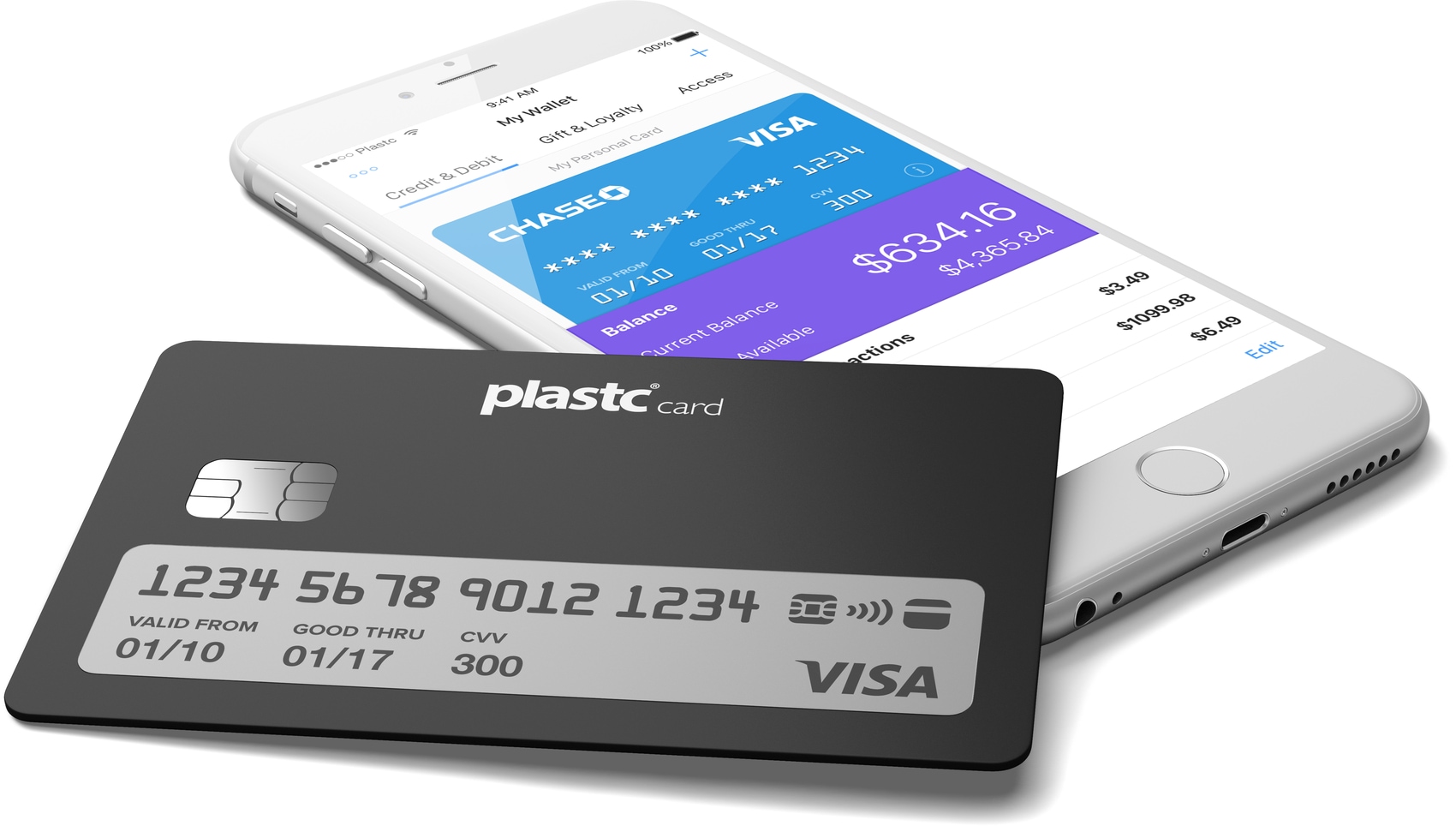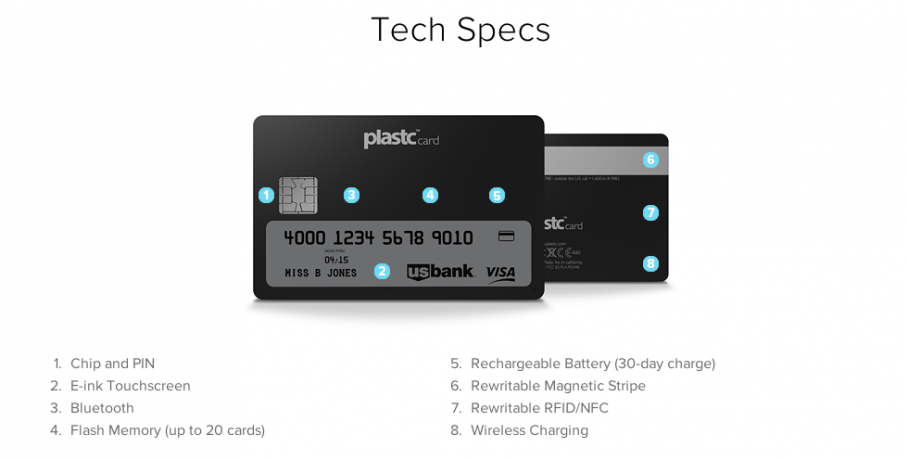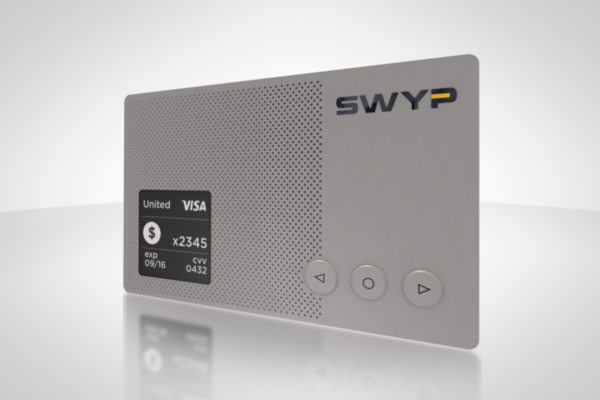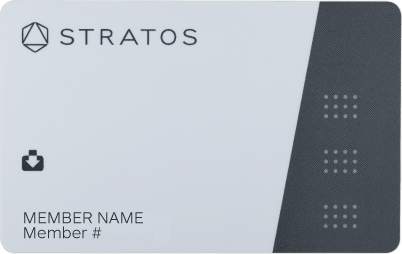
What is Plastc?
Plastc (not to be confused with Plastiq, a 3rd party payment processor) was a highly anticipated smart card that many customers have been eagerly awaiting for over a year. This card promised to consolidate all your credit cards into one electronic device, eliminating bulky wallets and looking stylish in the process.

Some of the touted features of the Plastc card
Unfortunately, the company that promised us this card announced plans to initiate Chapter 7 bankruptcy proceedings today after failing to procure enough funding to start production.
Many customers are upset, and rightfully so, since their pre-orders will not be refunded. This shutdown is especially poignant as customers were already frustrated by the constant delays that plagued Plastc for the past year.
Here is a transcript of their e-mail, it also appears on their official website plastc.com now:
We Regret to Inform You…
For the past 3 years, our mission here at Plastc was to build and deliver the most technically ambitious smart card on the planet. After making enormous leaps in development, product innovation and progress towards our goal, Plastc has exhausted all of its options to raise the money it needs to continue.
Plastc, Inc. is exploring options to file Chapter 7 Bankruptcy and will cease operations on April 20, 2017.
While we have fallen short of our goal, we are proud of our team and the effort that went into developing a working Plastc Card. However, without the necessary capital to continue, all employees have been let go, which means that Customer Care and Social Media channels are unmanned or have been shut down.
How We Got Here:
We were expecting to close a $3.5 million Series A funding round on February 28, 2017. There are functioning Plastc Cards, which were demonstrated to our investors and our backers, and the capital was to be allocated for the mass production and shipping of Plastc Cards to pre-order customers. At first, the principal investment group postponed their investment and a couple of weeks later the round fell apart.
After the initial funding was unavailable, Plastc made progress with another investor who offered $6.75 million. This deal was scheduled to close last week and would propel development across the finish line, as well as allow for Plastc Card pre-orders to be shipped and for production to continue into a retail phase.
However, once again at the very last minute, our investor gave us notice that they have decided rescind their investment offer. The round was a signature away from closing and we were extremely caught off guard when they notified us yesterday they were backing out. Our existing investors kept us alive and functioning as long as they could during this fundraising process, but in the end, we needed new outside capital to get into production.
What This Means For Backers:
It’s been a long road with a lot of obstacles. The support of our amazing backers has been incredible, which makes this announcement even harder. We were so incredibly ready for production in order to hit our deadlines but without capital it is impossible for us to move forward and we will not be able to fulfill any pre-orders.
We are disappointed and emotionally distraught, and while we know this is extremely disappointing for you, we want our backers to know that we did everything we could to make Plastc Card a reality.
– Plastc Inc.
All-in-One Smartcards
Plastc isn’t the only startup that faced trouble creating a super smartcard. Back in 2013 I pre-ordered Coin, a card that would consolidate all my cards into one sleek card. They were very good at taking my money but had tremendous difficulty communicating their progress with their backers. My expected shipment date came and went, and after a lot of pressure by customers for answers, it was revealed that they also faced challenges with production.

Coin
I canceled my order with Coin but they eventually went on to ship out some of their cards. The device suffered many functional problems, most notably with the card not swiping properly, if at all. The product also faced obsolescence as chip cards became more ubiquitous. Coin did not have a programmable chip, so this meant that you could not load chip-enabled cards onto your Coin.
Coin 2.0 was meant to address these issues and add NFC technology to boot, but that also flopped. Coin was eventually bought out by Fitbit and ceased operations earlier this year. I suppose in some sense you could call that a success story.
Plastc, Stratos, and Swyp were also on the scene during this time, playing their own rendition of the same tune. And like Plastc, they all seem to be in murky waters right now.

Swyp

Stratos
Final Thoughts
I’m not sure how long these startups can last. With the growing popularity of NFC technology like Apple Pay or Android Pay, it’s tough for customers to justify spending money on a product with no firm launch date, especially when their smartphones can easily accomplish the same task at no additional cost. Not to mention, with payment processors like MasterCard constantly toying with new security features (like biometric scanning), it’ll be nearly impossible for these smartcards to stay relevant for long.
